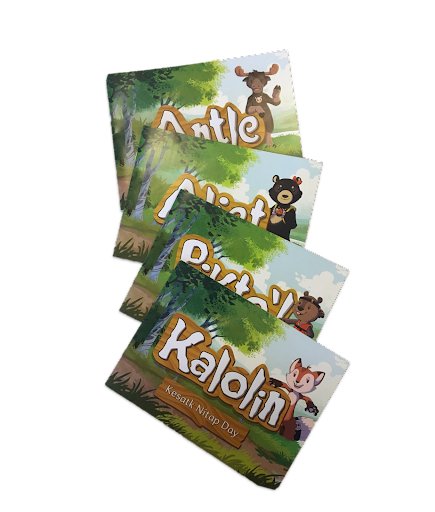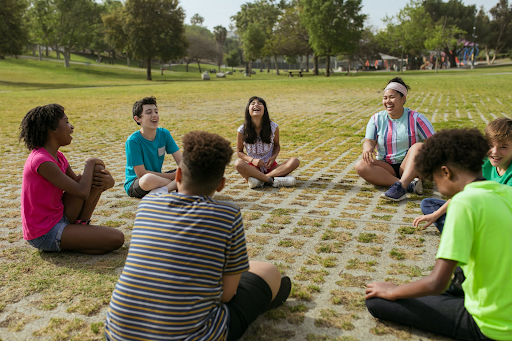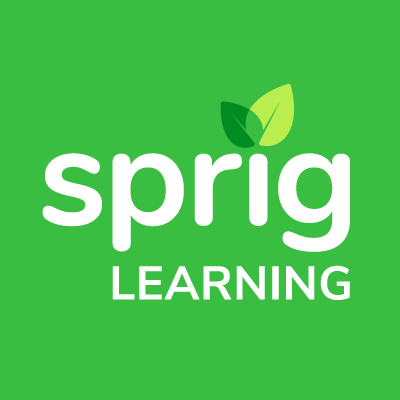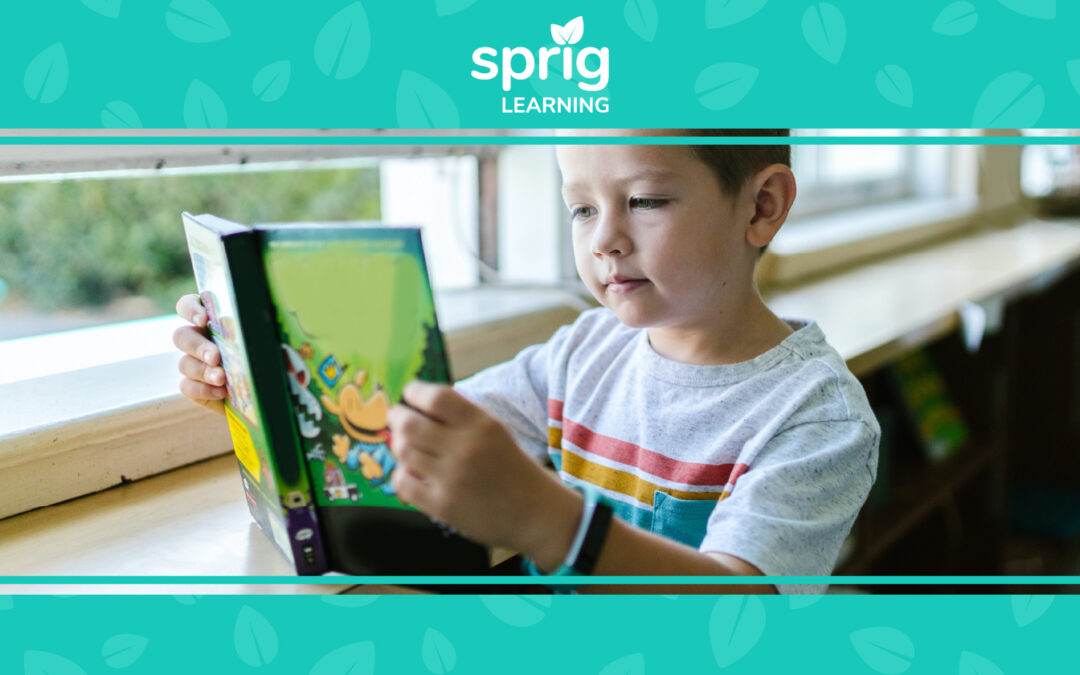Anytime early learners are away from school for an extended period of time, there is a risk of their literacy skills deteriorating. It’s easy to see why.
- A school provides young students with regular, structured lessons.
- Students have access to experienced teachers who know how to support early learners.
- Students also have a consistent learning environment to practice reading, with access to numerous books and other educational materials.
The concept of the summer slide or summer learning loss is very real. This is where there is a loss of knowledge that students gained from the previous school year following the summer break.
Sprig highlighted the summer slide phenomenon in a previous blog, where it was mentioned what learning recovery looks like for school children.
Indeed, schools should be well equipped to manage returning students that had varied summer experiences and were exposed to diverse learning opportunities. Some students may require more help than others in the form of one-on-one or group support.
But how can we mitigate the summer slide?
Or looking at it from a more positive angle, what if more learning opportunities were available during the summer so all students could continue to maintain and build their early literacy skills?
Summer reading programs provide opportunities to both retain and grow literacy skills. Not all summer reading programs are the same in how they go about doing this.
This article focuses on designing a summer reading program for early literacy.
Some very important questions are first answered to understand the heart of summer reading programs, followed by some thoughtful considerations on the best way forward for early literacy.
What is a Summer Literacy Program?

A summer learning program centered around language or reading is called a Summer Literacy Program.
It is intended for students who:
- are struggling to read at grade level.
- have socioeconomic or other identified challenges to literacy achievement.
There is often no fixed age range for students who are selected for the program.
They can be early learners in kindergarten, elementary and middle schools, depending on the local education board. The 3 to 12 age group is a common participation criteria for a lot of these summer programs.
The summer literacy program encourages students to read during their summer break so they retain the literacy skills they have gained throughout the school year.
Many literacy activities are offered according to the age group and reading level of the student. The duration of the program is often flexible. It can range from three weeks to the whole summer.
Reading knowledge and skills are not only retained in Summer Literacy Programs, but are often added as well. Students can make literacy gains during the summer break, which they can carry back to school in the fall.
Summer Literacy Programs are especially pertinent for young learners as there is a short window of opportunity to maximize learning at this formative stage of learning. This includes:
- Correcting wrong learnings
- Recovering lost learnings
- Adding new learnings
Every single day in the early childhood stage of learning is important.
The learning students acquire at this crucial juncture of their lives helps develop and establish the necessary and foundational skills. These skills, when learned properly, serve students well in their learning journey for the rest of their lives.
Summer is one quarter of the year and provides a helpful boost to early learning when this time is well used.
What is a Summer Literacy Camp?
A Summer Literacy Camp is very similar to the Summer Literacy Program, if not identical.
Some school districts call it a Summer Literacy Camp and make it available to their students who are struggling.
The students enrolled in the program are recommended by the teacher and/or principal.
Is There One Model of Summer Literacy Program?
There are in fact many examples of what a Summer Literacy Program can look like.
Some programs are directed at groups of students from multiple school districts. They are part of a study.
Harvard funded the Reading Enhances Achievement During Summer program where children from low-income families were mailed books to read that matched their interests and abilities.
The findings from this study showed that the children who received these books did better than their peers who did not receive them.
Some programs are multimodal. They have in-person, virtual and hybrid options.
The Scholastic Summer Reading Challenge allows kids to log their reading milestones and unlock weekly milestones, thus creating an incentive to continue reading.
It definitely helps to have such an interactive learning program which motivates children to pursue reading.
Some programs are completely resource based.
Any principal, teacher or parent can benefit from a resource package that is designed specifically for early literacy. By using videos, books and other resources, they are able to create their own summer literacy programs, even if the official infrastructure for it does not exist.
Is It An Early Literacy Intervention?
In some summer literacy programs, kids receive individual and small group literacy instruction. So the students who are already struggling are further differentiated to understand what would help them become better readers.
So yes, it can be thought of as an early literacy intervention during the summer break. But as discussed before, some summer literacy camps also see it as an opportunity to enrich learning.
Usually, when schools have intervention in mind, they will explicitly create intensive summer intervention programs for a particular group of struggling students. Most reading research points to the success of such programs, showing a significant relationship between the hours of intervention and improvement of reading ability.
The One Common Theme: Books

Sprig’s Storybooks
Whether it’s taking part in a reading challenge, doing a book review, participating in book giveaways, or maintaining reading logs, the one common theme in all Summer Literacy Programs is books.
As such, it’s important to involve people who are knowledgeable about and have access to books.
Some school libraries stay open for the summer for this very reason, and the school librarian plays a key role in summer reading programs.
Even without a librarian, at the very least, kids should have access to fun books which appeal to them. These books can be accompanied by animations or other effects like augmented reality.
Anything that encourages early learners to read should be favoured.
The Involvement of Parents

The involvement of parents in summer literacy programs is not only recommended, it is actually imperative to student success!
Yes, the literacy programs and camps are a way to keep kids engaged in a productive way during the summer. But just as it is during the school year, it’s important for parents to actively participate in their child’s learning.
Active parental involvement makes a big difference when it comes to making literacy gains.
Nearly half of parents are not even aware of the summer slide. So summer literacy programs have the responsibility to make families aware of the opportunity that exists to make use of the programs, and also support families in their own efforts to work on literacy.
The Sprig Home app has supported parents both during and post-pandemic to provide easy, accessible learning activities that turn those everyday moments into learning opportunities.
Summer Literacy Is Both Fun and Serious

While summer literacy programs are meant to be fun, it’s also serious enough that many different types of organizations (school districts, colleges, societies, and educational organizations) are now offering some version of summer literacy instruction.
In a recent study of 580 public and private elementary schools in the US, 65% of them held summer literacy programs, despite not being required or funded to do so.
Regardless of the type of organization, it’s clear that to provide an enriching learning experience to kids that truly excites them to pursue reading, educational resources are required that are specifically created for summer literacy.
The Family Summer Literacy Boost bundle from Joyful Literacy helps parents and summer schools teach students who are in kindergarten to Grade 2.
This fully digital video series contains downloadable books, videos from topmost experts in the field of literacy, and instructional materials geared towards reading mastery.
Sprig fully endorses the video bundle, given its equal emphasis on both teachers and parents, the collaboration of whom is absolutely essential for a successful summer literacy program.
Using What Works in Summer Literacy
The group of students you select for a summer literacy program, the modes you use to teach them, and the roles you involve to coordinate the program are all important decisions.
But it’s most important is to use an evidence-based literacy strategy that works.
The number of literacy activities one can do are endless.
Stories
Crafts
Explorations
Worksheets
Experiments
Etc.
But to do it all in a structured setting, supervised by literacy specialists and parents, is the real difference maker.
Teachers know their students. When teachers are given the opportunity to modify program components for their students, the effectiveness of summer literacy programs is further enhanced.
When prior assessments are conducted to understand the student’s areas of strength and growth, reading instruction is adjusted accordingly for the student.
From that point onwards, teachers can follow an evidence-based framework to monitor student progress until full literacy has been achieved.
Achieving early literacy for all is Sprig’s passion! If you can’t get enough of early literacy improvement articles, please also be sure to check out:
The 4 Golden Rules of Early Literacy Development
Building Early Literacy Skills in Schools. Thoughtful Considerations
Have any questions about summer reading or summer literacy programs? Contact us.

